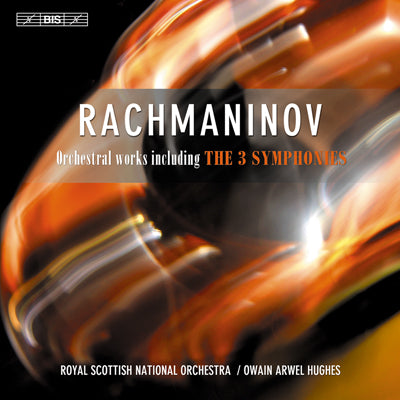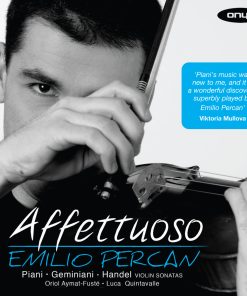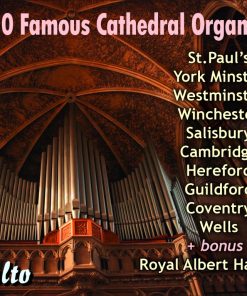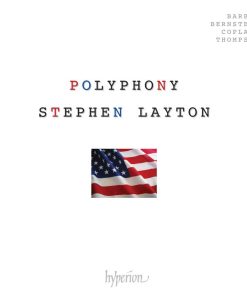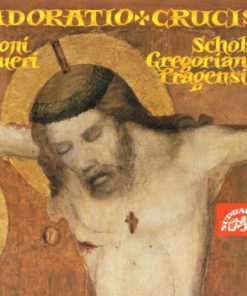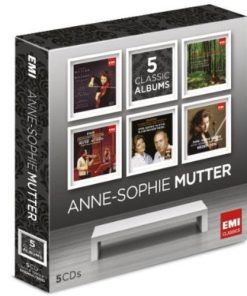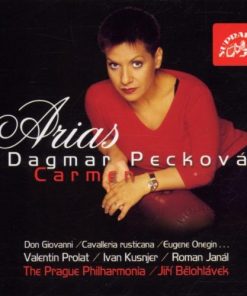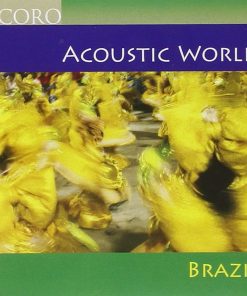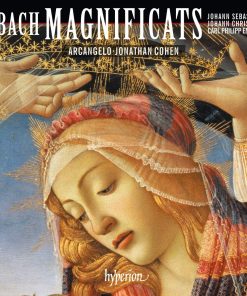RACHMANINOV: Orchestral Works – Royal Scottish National Orchestra (3 CDs) BIS
$ 19,99 $ 11,99

The immediate and immense popularity of certain of his works – the second piano concerto in particular – has been both a blessing and a curse for the reputation of Sergei Rachmaninov. It made him a household name in a way that few composers experience, but it also meant that other parts of his oeuvre was overshadowed and neglected. A case in point are the three symphonies, a genre which caused the composer great heartache, beginning with the disastrous reception of Symphony No.1 in 1897, one of the legendary fiascos in the history of music. By all accounts the direction of Alexander Glazunov was less than adequate – according to some eyewitnesses he was drunk! – but the young composer took the critical failure so at heart that he entered a grave depression and a creative crisis. He did not compose again until three years later, and only after ten years did he venture to write another symphony. This was received much more warmly, but even so it took him almost another thirty years to start composing the Third Symphony, premièred in 1936. The delay may have been caused by the composer’s feeling that his Second Symphony had not been fully understood – its epic dimensions, which have been compared to the ‘expanse of the Russian steppes’, have caused many a conductor to make cuts in the score. The composer’s views on this may be judged by the anecdote according to which Eugene Ormandy, preparing for a performance of the work, asked Rachmaninov to suggest cuts; some hours later, the score was returned to him. Only two bars had been crossed out.
This box brings together the three symphonies, coupled with the early works Prince Rostislav and the so-called ‘Youth Symphony’ as well as the composer’s own arrangement for orchestra of Vocalise, possibly his most well-loved piece. The interpretations by Owain Arwel Hughes, conducting the Royal Scottish National Orchestra, were highly praised at the original release (as single discs) of these recordings in 2002 and 2003, as testified by the following quotes:
‘Hughes is the first conductor to convince me that the First Symphony is on a par with its two successors.’ International Record Review
‘A major surprise, this immensely moving and poetic version has made itself a place at the very top of the discography.’ (Symphony No.2) Répertoire
‘Refined and thoughtful … bringing out the beauty of sound with exceptionally clear textures.’ (Symphony No.3) – Gramophone
‘The great modern Rachmaninov cycle.’ Répertoire

Disc 1
Sergei Rachmaninov
Symphony No.1 in D minor, Op.13 (1895) 45’30
01 I. Grave – Allegro ma non troppo 13’30
02 II. Allegro animato 9’29
03 III. Larghetto 10’07
04 IV. Allegro con fuoco 12’24
05 Prince Rostislav, symphonic poem (1891) 16’48
Disc 2
Sergei Rachmaninov
Symphony No.2 in E minor, Op.27 (1906-07) 67’02
01 I. Largo – Allegro moderato 25’08
02 II. Allegro molto 10’11
03 III. Adagio 16’09
04 IV. Allegro vivace 15’34
Disc 3
Sergei Rachmaninov
Symphony No.3 in A minor, Op.44 (1935-36) 44’38
01 I. Lento – Allegro moderato 16’54
02 II. Adagio ma non troppo 13’25
03 III. Allegro 14’19
Symphonic Movement in D minor ‘Youth Symphony’ (1891)
04 Grave – Allegro molto 14’51
05 Vocalise, Op.34 No.14, arrangement for orchestra (1912) 7’20
Album total 199’51
Fast Shipping and Professional Packing
Due to our longstanding partnership with UPS FedEx DHL and other leading international carriers, we are able to provide a range of shipping options. Our warehouse staff are highly trained to pack your goods exactly according to the specifications that we supply. Your goods will undergo a thorough examination and will be safely packaged prior to being sent out. Everyday we deliver hundreds of packages to our customers from all over the world. This is an indication of our dedication to being the largest online retailer worldwide. Warehouses and distribution centers can be located in Europe as well as the USA.
Orders with more than 1 item are assigned processing periods for each item.
Before shipment, all ordered products will be thoroughly inspected. Today, most orders will be shipped within 48 hours. The estimated delivery time is between 3-7 days.
Returns
The stock is constantly changing. It's not entirely managed by us since we are involved with multiple parties such as the factory and our storage. The actual stock can fluctuate at any time. Please understand it may happen that your order will be out of stock when the order is placed.
Our policy is valid for 30 days. If you haven't received your product within 30 days, we're not able to issue either a return or exchange.
You are able to return a product if it is unused and in the same condition when you received it. It must also still remain in the original packaging.
Related products
MUSIC CD
MUSIC CD
MUSIC CD
